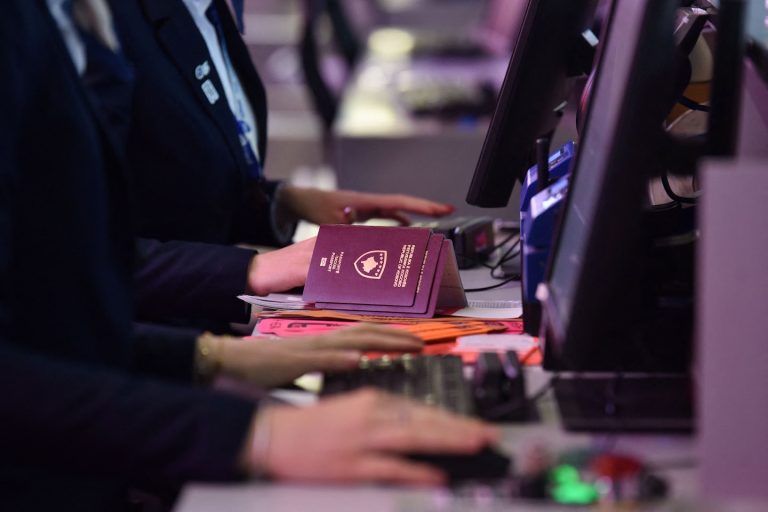The list, based on data from the International Air Transport Association, highlights the realities of passport privilege: for some, a passport is a key to the world, while for others, it is a lock on it. Here are the global rankings.
The most powerful passports
Seamless visa-free travel basically means holding a European passport or being from one of the high-income Asian countries, depending on the rankings. Four EU member states – France, Germany, Italy and Spain – moved to the top of the list this year, joining Japan and Singapore, the two economic powers that have dominated the global passport rankings for the past five years. The United States, which topped the list a decade ago, took its place in seventh place, tied with Canada and Hungary.
Trevor Williams, former chief economist at Lloyds Bank, said in a statement that the “overarching narrative linking greater economic performance to visa-free access” was “strongly highlighted again” in the latest report.
- France, Germany, Italy, Japan, Singapore and Spain: visa-free entry to 194 destinations.
- Finland, South Korea and Sweden: visa-free entry to 193 destinations.
- Austria, Denmark, Ireland and the Netherlands: visa-free entry to 192 destinations.
- Belgium, Luxembourg, Norway, Portugal and the United Kingdom: visa-free entry to 191 destinations.
- Greece, Malta and Switzerland: visa-free entry to 190 destinations.
Less powerful passports
Travel restrictions have decreased globally, with the average number of destinations travelers can visit without a visa doubling since 2006, according to Henley & Partners, which advises the wealthy on residency and citizenship by investment. But not all countries have benefited from this increased access to services, and inequality between rich and poor countries has widened.
In the newly released list, of the five countries at the bottom of the list, four are also among the ten most affected by terrorism, according to the Global Terrorism Index, and all of them have a recent history of armed conflict.
Dutch professors Henk van Houtum and Annelies van Ouden likened visas to “paper prisons” in a 2021 paper, writing that “rich countries exclude those who are seen as posing an economic or security risk, particularly the world’s poor.” Such policies allow what they call “a global aristocracy determined primarily by birth” to lock in “a global underclass, and from afar.”
- Afghanistan: Visa-free entry to 28 destinations.
- Syria: Visa-free entry to 29 destinations.
- Iraq: Visa-free entry to 31 destinations.
- Pakistan: Visa-free entry to 34 destinations.
- Yemen: Visa-free entry to 35 destinations.
Passports with the most dramatic transformations
Changes in passport mobility occur when countries add or remove visa requirements for travelers of other nationalities. Canada, for example, opened visa-free travel to 13 new countries last year, while the United Kingdom announced it would impose visa requirements on Hondurans in response to a rise in asylum claims at the border.
The UAE has seen its biggest shift in power over the past decade, jumping from 55th to 11th place, with the addition of an “astonishing” 106 destinations to the visa-free travel tier, Henley & Partners said. China and Ukraine have also seen big shifts, each gaining 21 visa-free entry destinations over the past 10 years.

